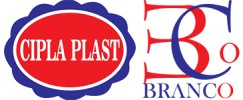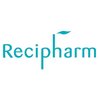Filter interviews by
Logos Pharma Ipqa Officer Interview Questions and Answers
Logos Pharma Ipqa Officer Interview Experiences
1 interview found
(1 Question)
- Q1. Role of IPQA officer
Interview questions from similar companies

I applied via Approached by Company and was interviewed before Dec 2022. There were 4 interview rounds.

Asked about cement plant operations & troubleshooting problems in your career.
(1 Question)
- Q1. Cement plant operation related
(1 Question)
- Q1. Personal introduction & salary negotiation
I applied via Naukri.com and was interviewed in Aug 2021. There was 1 interview round.
Interview Questionnaire
2 Questions
- Q1. Water system, DM plant's
- Q2. HVAC, Electrical maintenance
Interview Preparation Tips


(2 Questions)
- Q1. About yourself and skills related questions
- Q2. Job profile related question
Interview Preparation Tips

I applied via Recruitment Consultant and was interviewed before Jun 2020. There were 5 interview rounds.
Interview Questionnaire
1 Question
- Q1. Asked about management & ceo , also department wise
Interview Preparation Tips
1) written test 2) practical test 3) group discussion 4) hr round

I applied via Walk-in and was interviewed before Oct 2022. There were 2 interview rounds.

(3 Questions)
- Q1. What is PH? And normality,malarity
- Ans.
PH is a measure of acidity or alkalinity of a solution. Normality and molarity are units of concentration in chemistry.
PH stands for potential of hydrogen and measures the acidity or alkalinity of a solution on a scale of 0 to 14.
Normality is a measure of concentration in chemistry, representing the number of equivalents of a substance per liter of solution.
Molarity is another measure of concentration, representing the...
- Q2. How many people in there your house?
- Q3. Are you comfortable in night shift and rotation shift for work?
Interview Preparation Tips
- pH, normality malarity,
- Cipla products manufactured name

I applied via Job Fair and was interviewed in Mar 2023. There were 2 interview rounds.

(8 Questions)
- Q1. Out of specifications Deviation handling procedure Software uses
- Ans.
The out of specifications deviation handling procedure involves identifying, documenting, investigating, and resolving any deviations from specifications in software.
Identify the deviation from specifications in the software
Document the deviation with details such as date, time, and nature of the deviation
Investigate the root cause of the deviation
Implement corrective actions to resolve the deviation and prevent recurr...
- Q2. Chromatography HPLC Calibration and trouble shooting.
- Ans. Calibration details Trouble shooting peak merging,peak splitting
- Q3. Data review process Raw material, Finished product
- Ans. Verified the all data Chromatography review data
- Q4. Stability guidelines
- Q5. Awareness, development training of new upcoming employees and junior
- Q6. Out of trends specifications criteria
- Q7. Audit preparation readiness
- Ans. Awareness and initial checklist details preparation
- Q8. Microbiology training and awareness
Interview Preparation Tips
Advanced technologies and techniques

I appeared for an interview in Jul 2019.
Interview Questionnaire
6 Questions
- Q1. Pharmaceutical
- Q2. Pharmaceuticals analysis
- Q3. Tablet and capsule
- Q4. Deffect of tablet
- Q5. Evaluation of tablet
- Q6. Sy

Direct Marketing Executive Interview Questions & Answers
Oceanic Pharmachemposted on 26 Apr 2021
I applied via Recruitment Consultant and was interviewed before Apr 2020. There were 5 interview rounds.
Interview Questionnaire
1 Question
- Q1. I asked my question to this company related my work & my performance
Interview Preparation Tips

Sales Coordinator Interview Questions & Answers
Oceanic Pharmachemposted on 24 May 2021
I applied via Recruitment Consultant and was interviewed before May 2020. There were 5 interview rounds.
Interview Questionnaire
1 Question
- Q1. Tell me about your self & all family background
Interview Preparation Tips
first written test , then practical , and then case study , Finally HR Round
Logos Pharma Interview FAQs
Tell us how to improve this page.
Logos Pharma Interviews By Designations
Interview Questions for Popular Designations
Logos Pharma Ipqa Officer Interview Process
based on 1 interview
Interview experience
Interview Questions from Similar Companies
Logos Pharma Ipqa Officer Reviews and Ratings
based on 2 reviews
Rating in categories
|
Marketing Executive
6
salaries
| ₹4 L/yr - ₹5 L/yr |
|
Ipqa Officer
5
salaries
| ₹1.4 L/yr - ₹2.4 L/yr |
|
Purchase Executive
5
salaries
| ₹2.8 L/yr - ₹3.6 L/yr |
|
QC Chemist
5
salaries
| ₹2 L/yr - ₹4.8 L/yr |
|
Senior Officer
5
salaries
| ₹3 L/yr - ₹4.6 L/yr |

Recipharm Pharmaservices

Abbott Nutrition International

Pure & Cure Healthcare

Steadfast Medishield
- Home >
- Interviews >
- Logos Pharma Interview Questions >
- Logos Pharma Ipqa Officer Interview Questions













